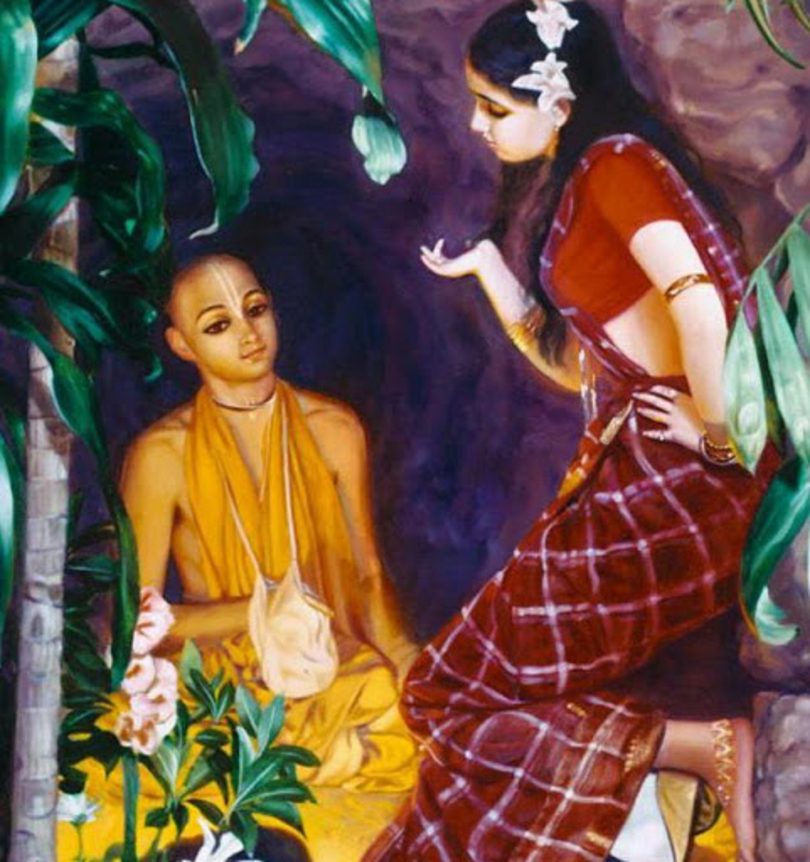Question: In NOD Ch 8, the 9th offense is described as follows: “(9) To instruct a faithless person about the glories of the holy name. (Anyone can take part in chanting the holy name of the Lord, but in the beginning one should not be instructed about the transcendental potency of the Lord. Those who are too sinful cannot appreciate the transcendental glories of the Lord, and therefore it is better not to instruct them in this matter.)”
It seems that this was exactly what happened in the assembly at the home of Hiranya and Govardhan Majumadara, when Haridas Thakur had to corrent the two bramanas who were offering a response as to the glories of the Holy Name. Gopal Chakravarti got a severe reaction due to his faithless outburst upon hearing the true glories of the Holy Name.
Is this not an example of the 9th offense?
In this is an example of the 9th offense, one might argue, “Then Haridas Thakur’s chanting was not offenseless!” How to respond to such a doubt?
Answer by Romapada Swami: This is an excellent example of the 9th offense.
Regarding the 2nd part of your question, there are several considerations.
Haridas Thakur was not preaching to Gopala Cakravarti, but responding to the requests of the different devotees there. Being in the assembly, Gopala Cakravarti overheard the exchange and became adversely affected, just as quoted from NOD above.
As a maha-bhagavata Haridas Thakur did not really discriminate so much in these ways (as indicated in the NOD quote above), but rather was merciful to all, including the rascal.
Nonetheless, Gopala Cakravarti acted offensively towards Haridas Thakur, primarily on the basis of hearing the intimate glories of the Holy Name from him. Even in taking this event as an example of the 9th offense, it was indeed a most rare occurence in Haridas Thakur’s life. In this unique circumstance, BG 9.30-31 would also perfectly apply: Haridas Thakur’s saintliness had not been compromised in the least.







